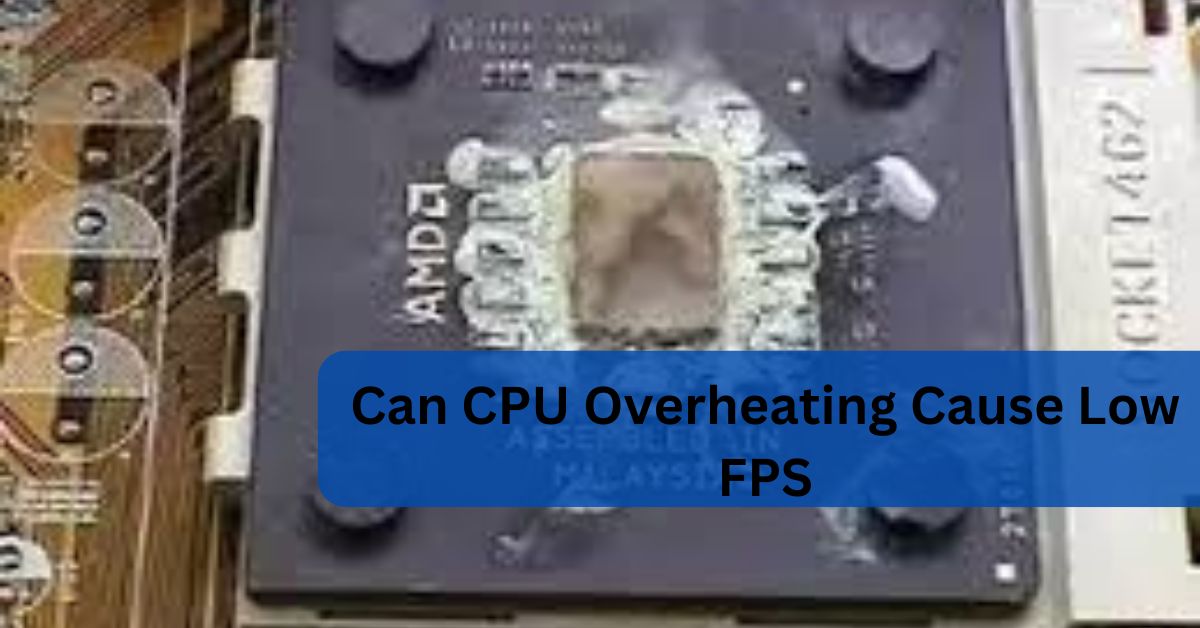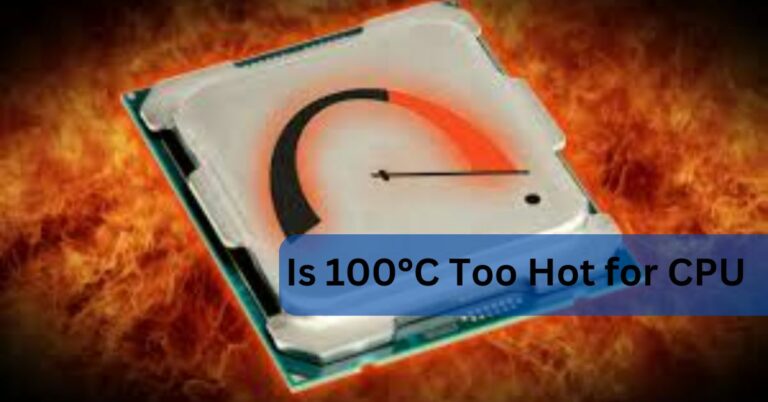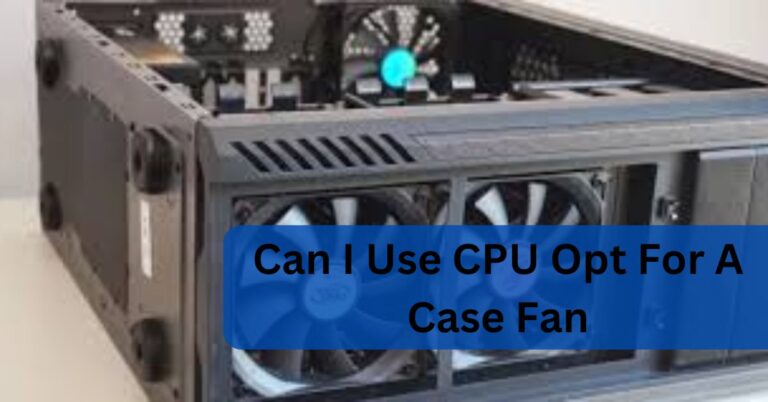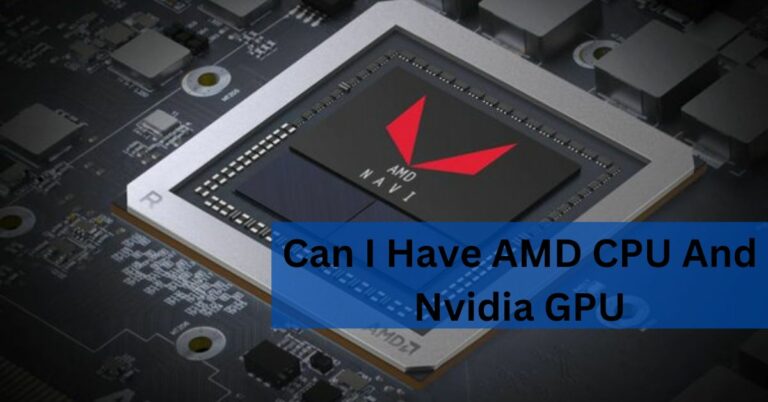Can CPU Overheating Cause Low FPS – Complete Guide – 2024!
When it comes to gaming or running high-performance applications, achieving smooth frame rates (FPS) is a top priority for many users. However, if you’ve noticed your FPS dropping, one potential culprit could be your CPU overheating.
“Yes, CPU overheating can cause low FPS. When the CPU gets too hot, it automatically reduces its speed to prevent damage, known as thermal throttling. This slower processing speed can result in lower FPS in games, affecting your overall gaming experience. Proper cooling is essential to avoid this issue”
Overheating can cause a CPU to throttle its speed, leading to lower FPS during gaming. When the CPU gets too hot, it can’t perform at its best, which affects overall performance. Keeping your CPU cool is essential for maintaining smooth gameplay.
Understanding CPU Overheating
The CPU (Central Processing Unit) is the brain of your computer, handling all the calculations and processes required for running software and games.
As the CPU works harder, it generates heat. Modern CPUs are equipped with cooling systems, such as fans or liquid coolers, to dissipate this heat and maintain an optimal operating temperature.
However, when the cooling system is insufficient or fails, the CPU can overheat.
How CPU Overheating Affects FPS!
FPS, or frames per second, is a measure of how smoothly your computer can run a game or application.
Higher FPS means smoother visuals, while lower FPS can result in choppy and laggy performance.
When a CPU overheats, it can lead to several issues that directly impact FPS.
Throttling:
One of the primary ways overheating affects FPS is through a process called throttling.
Throttling occurs when the CPU automatically reduces its clock speed to lower the temperature and prevent damage.
While this protects the CPU, it also decreases its processing power, leading to reduced performance in games and applications.
As a result, you may experience significant drops in FPS, especially during demanding tasks.
System Instability:
An overheating CPU can cause system instability, leading to crashes, freezes, or unexpected shutdowns.
These issues disrupt the normal operation of your computer, and in a gaming context, they can result in abrupt FPS drops or even complete game crashes.
If you frequently experience these problems, CPU overheating might be the root cause.
Inefficient Processing:
When the CPU is too hot, it cannot process data as efficiently as it would under normal operating conditions.
This inefficiency means that the CPU takes longer to complete tasks, leading to delays in rendering frames.
Consequently, this delay translates into lower FPS, as the system struggles to keep up with the demands of the application or game.
Identifying CPU Overheating!
If you suspect that CPU overheating is causing low FPS, the first step is to confirm it. Here are some signs and tools you can use to identify overheating:
- High CPU Temperatures: Use monitoring software like HWMonitor, Core Temp, or SpeedFan to check your CPU temperature. If the temperature exceeds 85°C under load, your CPU may be overheating.
- Frequent Throttling: If you notice sudden drops in performance or stuttering in games, it could indicate that your CPU is throttling due to high temperatures.
- System Instability: Random crashes, freezes, or shutdowns are often signs of overheating. If these issues occur frequently during gaming or heavy tasks, your CPU might be too hot.
Preventing and Fixing CPU Overheating!
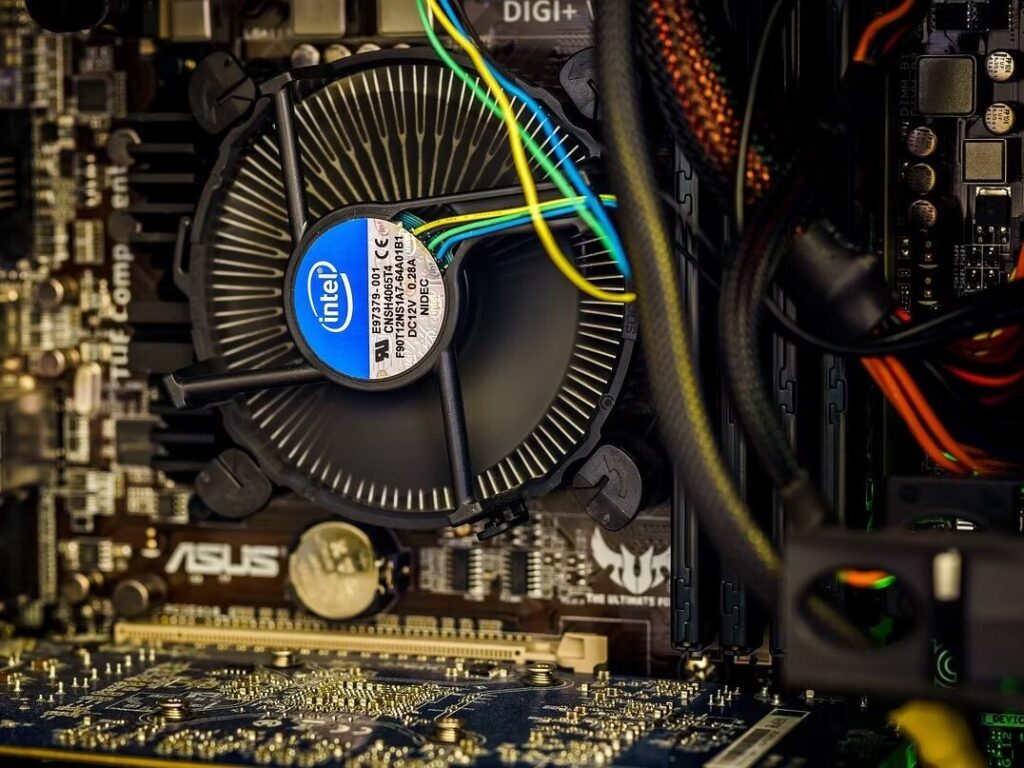
To prevent CPU overheating and the resulting low FPS, you can take several measures:
Improve Cooling:
Ensure your CPU cooler is adequate for your system’s needs. If you’re using a stock cooler, consider upgrading to a more efficient air or liquid cooling solution.
Also, make sure your computer case has proper airflow, with enough fans to move hot air out and bring cool air in.
Clean Your System:
Dust buildup can block airflow and reduce the efficiency of your cooling system.
Regularly clean the inside of your computer, especially the fans and heatsinks, to prevent dust from accumulating.
Compressed air can be used to clean out hard-to-reach areas.
Apply Thermal Paste:
Thermal paste is applied between the CPU and the cooler to improve heat transfer. Over time, thermal paste can dry out and lose its effectiveness.
Reapplying fresh thermal paste can help maintain optimal cooling performance.
Monitor Temperatures:
Regularly monitor your CPU temperatures, especially during gaming or other heavy tasks.
If you notice temperatures creeping up, take action before it leads to overheating and performance issues.
Adjust Settings:
Lowering the graphical settings in games can reduce the load on your CPU, preventing it from overheating.
While this might not be ideal, it’s a temporary fix if you’re unable to improve cooling immediately.
Does a cpu overheating dramatically effect fps/performance?
Yes, a CPU overheating can dramatically affect FPS and performance. When the CPU gets too hot, it may slow down to prevent damage, causing your games or applications to run slower and lowering the overall FPS.
Does CPU Overheating Cause FPS Drops?
Yes, overheating can cause FPS drops. When the CPU gets too hot, it reduces performance to avoid damage, leading to lower FPS and reduced overall system performance.
Does an Overheating CPU Affect FPS in Games?
Yes, an overheating CPU can lower FPS in games. High temperatures force the CPU to throttle its speed, which decreases game performance and smoothness.
Does CPU Increase FPS?
No, a CPU doesn’t directly increase FPS. However, a powerful CPU can help maintain higher FPS by processing game data more efficiently, assuming other system components are also strong.
Does GHz Affect FPS?
Yes, GHz can affect FPS. Higher GHz means a faster CPU clock speed, which can improve processing speed and help increase FPS in games and applications.
Does VGA Affect FPS in Games?
Yes, VGA (or GPU) affects FPS in games. A more powerful GPU can handle higher resolutions and graphics settings, leading to better FPS and smoother gameplay.
Why Does the CPU Temperature Affect FPS?

The CPU temperature affects FPS because overheating causes the CPU to throttle its speed to avoid damage, reducing performance and leading to lower FPS in games and applications.
What Settings Affect FPS the Most?
Graphics settings, such as resolution, texture quality, and shadows, affect FPS the most. Higher settings require more processing power and can lower FPS if the system cannot keep up.
Can a Bad CPU Cause Low FPS?
Yes, a bad CPU can cause low FPS. If the CPU is failing or underperforming, it can struggle to process data efficiently, leading to lower FPS in games and applications.
Does Overheating CPU Affect Performance?
Yes, an overheating CPU affects performance. It may throttle to prevent damage, which reduces processing speed and overall performance, including FPS and responsiveness.
Does Laptop Overheating Cause Lag?
Yes, laptop overheating can cause lag. High temperatures can lead to thermal throttling, reducing the laptop’s performance and causing delays and stuttering in applications and games.
Can CPU Overheating Cause Low FPS Gaming?
Yes, CPU overheating can cause low FPS in gaming. Overheating forces the CPU to slow down, which reduces performance and leads to lower FPS.
How to Fix CPU Overheating?
To fix CPU overheating, improve cooling by cleaning dust from fans, applying fresh thermal paste, and using a better cooling system. Ensure proper airflow in your computer case.
How to Check CPU Temp?
To check CPU temperature, use monitoring software like HWMonitor or Core Temp. These tools provide real-time temperature readings and help you determine if your CPU is overheating.
FAQS:
How Does CPU Overheating Affect Gaming Performance?
CPU overheating affects gaming performance by causing the CPU to throttle its speed to prevent damage. This results in lower processing power, reduced FPS, and choppy gameplay.
Can CPU Overheating Cause Permanent Damage?
Yes, prolonged CPU overheating can cause permanent damage. High temperatures can degrade the CPU’s components over time, leading to reduced lifespan and potential hardware failure.
How Do I Check CPU Temperatures?
To check CPU temperatures, use monitoring software like HWMonitor, Core Temp, or SpeedFan. These programs provide real-time temperature readings and help you assess if your CPU is overheating.
Can My CPU Cause Low FPS?
Yes, a CPU can cause low FPS. If the CPU is underperforming or overheating, it may struggle to keep up with game processing, leading to lower FPS and reduced performance.
Does FPS Drop Due to Heat?
Yes, FPS can drop due to heat. Overheating causes the CPU or GPU to throttle, reducing performance and resulting in lower FPS and choppy gameplay.
Why Is My FPS Suddenly So Low?
Your FPS may suddenly drop due to overheating, system throttling, background processes, or a failing component. Checking temperature, resource usage, and hardware health can help diagnose the issue.
Conclusion:
In Conclusion Yes, CPU overheating can cause low FPS by triggering thermal throttling, which reduces processing power. This results in slower game performance, choppy visuals, and possible system instability. Proper cooling and regular maintenance are essential to avoid these issues

